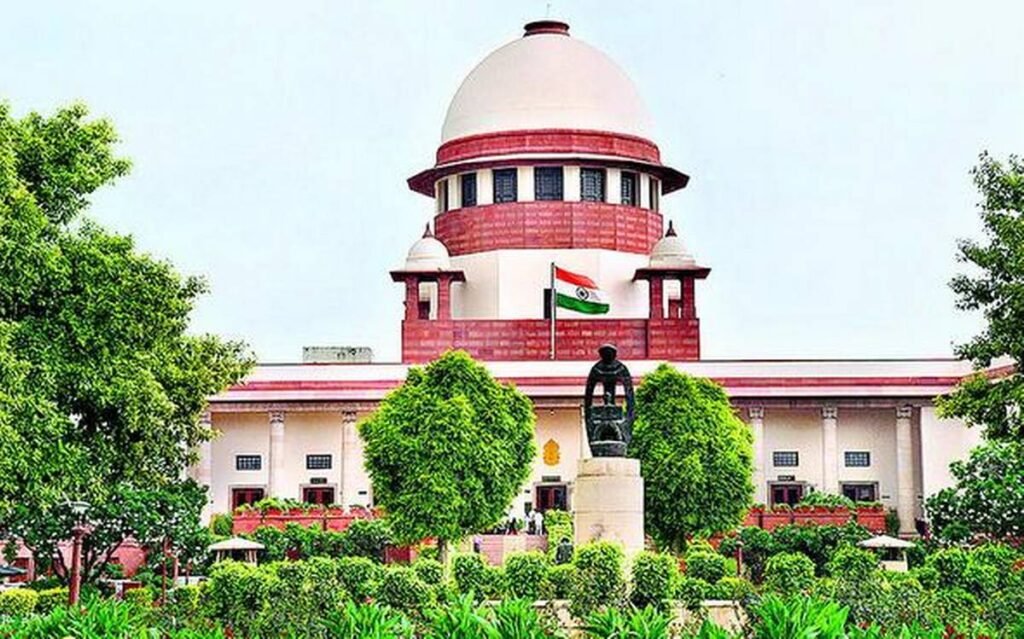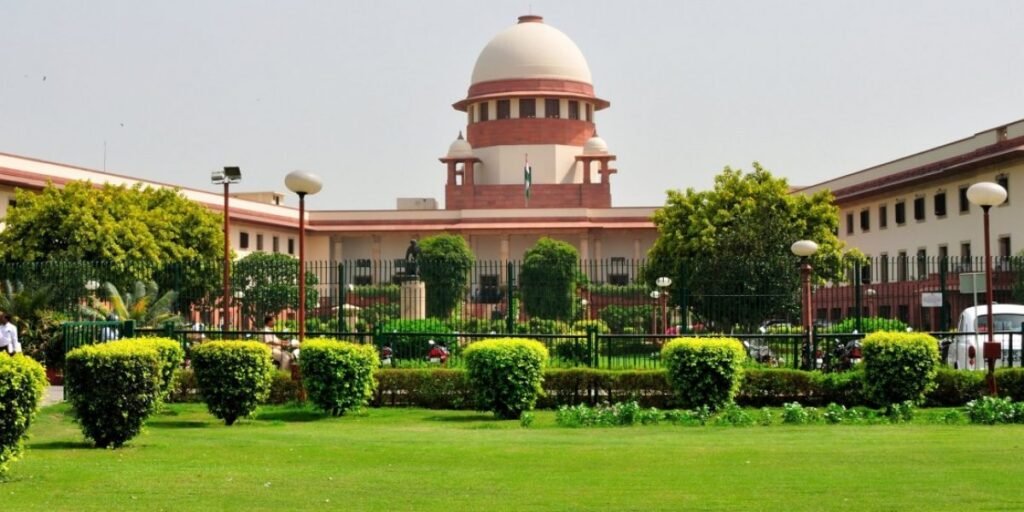New Delhi: The Supreme Court directed all states and union territories to implement in three months the guidelines formulated by the Centre to check “unnecessary hysterectomies”, a surgical procedure to remove the uterus, of poor women just for raking in high insurance fees from governments under various health insurance schemes.
A bench of Chief Justice D Y Chandrachud and Justice J B Pardiwala disposed of a PIL on the issue after taking note of the submissions of Additional Solicitor General Aishwarya Bhati, appearing for the Union Ministry of Health and Family Welfare, that comprehensive guidelines to regulate “unnecessary hysterectomies” have been framed.
The law officer said the action plan to tackle the problem included suggestions to create national, state and district-level hysterectomy monitoring committees and the inauguration of a grievance portal.
“Since sufficient steps have now been taken by the Union government in framing the guidelines …, we see no reason to keep the petition alive. The Union government will now take necessary steps in accordance with the guidelines,” the bench said.

“The guidelines adopted by the Ministry of Health and Family Welfare are mentioned in the status report. The Ministry shall now engage with all states and UTs. We direct that all states and UTs shall adopt the same within three months,” it ordered.
The court also noted the real picture will emerge after the data will be available and permitted the Centre to take necessary policy decisions once every six months.
“We propose a strong and robust mechanism of monitoring and evaluation of the issue. There has to be reporting of the hysterectomies, causes especially for women below the age of 40 years,” the law officer said.
The data have to be monitored at district and state level and the central government has suggested constitution of committees for the same.
“A grievance portal will also be set up which will be maintained by the National Health Authority…We will also constitute the National Committee within four to six weeks,” the law officer said.
The bench asked the Centre to consider the suggestion of the PIL petitioner who said for a woman below 40 years of age such a surgery should be conducted after a review by two doctors.
“One more suggestion, we just want that other alternative treatments may be suggested first rather than suggesting hysterectomy,” the PIL petitioner said.
The guidelines of the central government on prevention of unnecessary hysterectomies have been forwarded to all states and union territories with an advisory to strictly comply with them.
“In developed countries Hysterectomy is typically conducted amongst pre-menopausal women above the age of 45 years. In India, community based studies have consistently found rising hysterectomy rates amongst young women, ranging from 28 to 36 years of age,” the Centre said.
Further, evidence indicates higher risk amongst poor, less educated women in rural areas, it said, adding that field based studies have also indicated that unnecessary hysterectomies are performed in cases where medical or non-invasive treatment would have been sufficient.
“The Guidelines note that reporting hysterectomies, cases conducted for less than 40 years of age and cause of hysterectomy need to be incorporated in the existing screening checklist. To this end, the Guidelines propose setting up of Hysterectomy Monitoring Committees at District, State and National levels,” the government said.
It said the district level committee must be set up in every district under the chairmanship of District CMO and they will issue necessary orders to both public and private sectors to submit a list of all women who underwent hysterectomy every month.

“State Committee must be set up under the Chairpersonship of State Principal Secretary with the State level Director Public Health (DPH) being the nodal officer and NCD state program officer…,” it said.
Earlier, the top court had sought the Centre’s response to the PIL alleging that doctors in Bihar, Rajasthan, and Chhattisgarh have been performing “unnecessary hysterectomies”.
The PIL was filed by Narendra Gupta, a medical practitioner.
Hysterectomy is a surgical procedure to remove the uterus after which a woman can neither conceive nor can have menstrual periods regardless of her age.
The PIL, based on media reports and researched facts, had alleged a “widespread pattern of doctors performing medically unnecessary hysterectomies to reap high insurance fees from the government” in states such as Bihar, Rajasthan, and Chhattisgarh.
It had sought compensation for the victims women and meaningful policy changes to deal with the problem.
The women, aided by heavily-subsidised state-funded health insurance schemes, usually go to private hospitals for medical care for symptoms such as “abdominal pain and general weakness” and doctors resort to “unnecessary hysterectomy operations after cursory, or in some cases, no medical examinations”, the petition had alleged.
The petition had sought directions to the state governments “to implement monitoring, inspection and accountability mechanisms for the private healthcare industry” which is empanelled to serve the poor covered under the government’s health insurance schemes.
PTI
